Manufacturers: Whitmore and Binyon
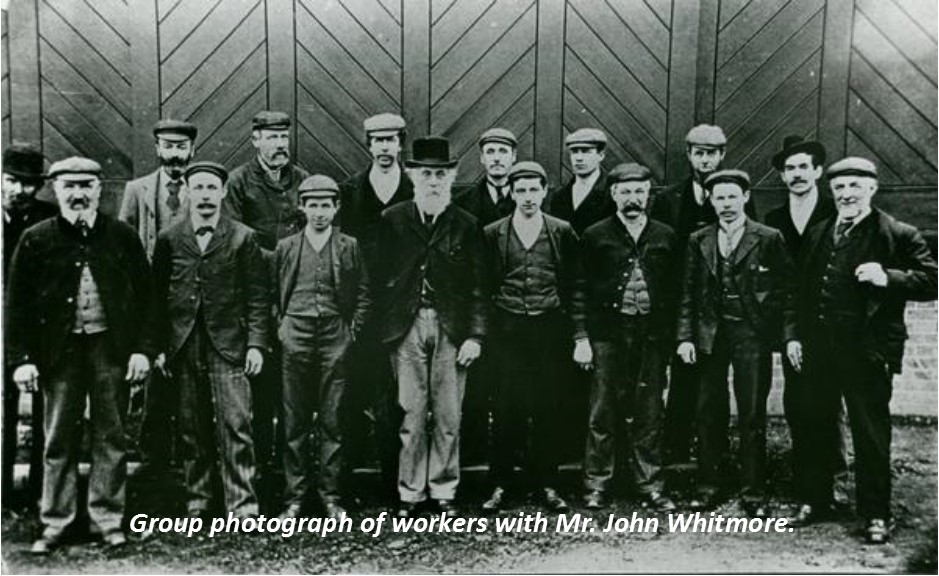
Whitmore and Binyon was a British Engineering Firm that started life in 1780 when Mr. Nathaniel Whitmore opened an iron works. However, it was his son, Mr. John Whitmore, who made the Wickham Market Iron Works successful when he set out on his own in 1827, 15 years after Nathaniel Whitmore had died. Under John Whitmore the business grew. By 1843 the Iron Works employed 15 men and had its own fire engine. By 1851, 20 men were employed and by 1860, 60 men. In this same year Mr. John Whitmore entered into partnership with two of his sons, Mr. William Nathaniel Whitmore, aged 27, and Mr. John Whitmore Junior, aged 21. This partnership was known as Whitmore and Sons and they continued to produce equipment for mill-stone milling. Just two years after the formation of this partnership they achieved success at the International Exhibition winning a medal ‘for excellence of work in steam engineering and flour milling machinery’.
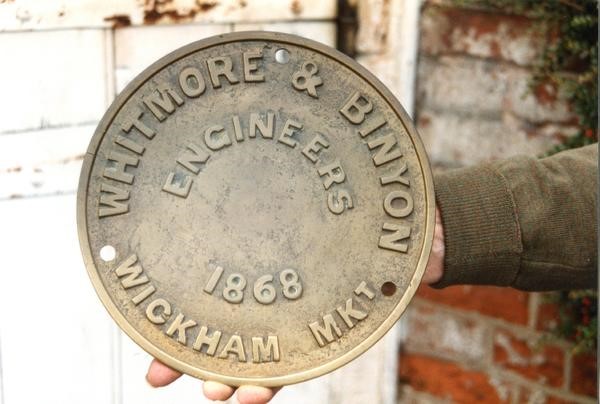
In 1862, after this success, Mr. John Whitmore retired and the business was left to his two sons. Unfortunately John Whitmore Junior would have to move to Italy because of his health so it was William Whitmore who solely ran the business until 1868. This retirement of Mr. John Whitmore coincided with a massive growth within the company as by 1864 there were 200 men employed at the Iron Works and an office was opened in Mark Lane, London. At this point the business was still operating under the name of Whitmore and Sons. However, in 1868 this changed when George Binyon became a partner in the company and it became known as Whitmore and Binyon.
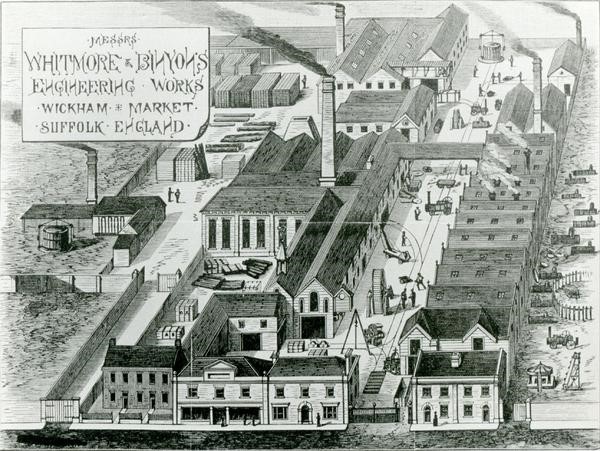
The late 1870’s and 80’s would see the arrival of roller machinery, Mr. John Whitmore would not witness this new innovation as he died in 1872, but the company he founded would. Whitmore and Binyon had to expand from producing products for traditional milling to these new machines. This they accomplished by expanding the works and hiring Mr. W. J. Perrett, a man with experience in roller machinery. With these steps taken ‘the Firm soon took again a position of the first rank, and some of the largest and most important Roller Mills erected in this country as well as abroad, have been entrusted to and carried out most successfully by them’. Examples from Britain included the local mill in Wickham Market (Rackham’s mill), and a 50 sacks per hour plant for James Tucker Ltd. on the East Dock, Cardiff. Machinery was also sent abroad, although not necessarily roller machinery: machinery for a Rice Mill was sent to Siam, steam engines to Romania and other machinery to Johannesburg. They truly did have a global reach.
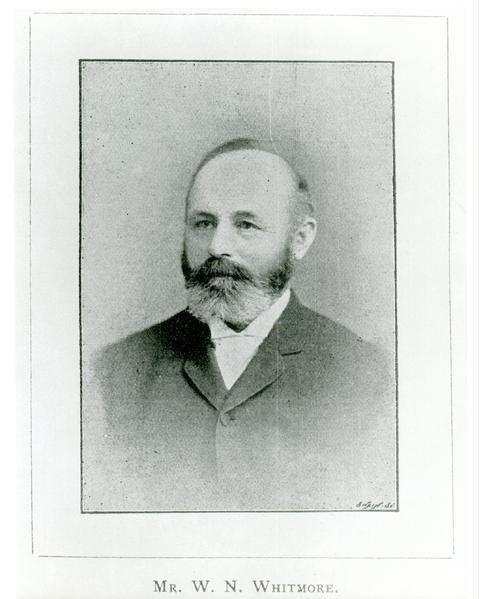
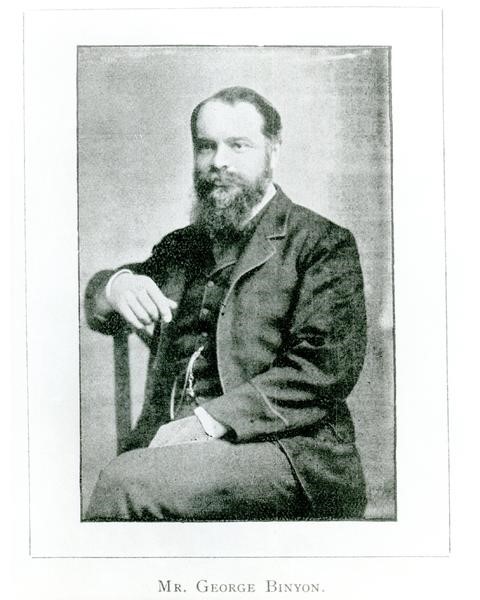
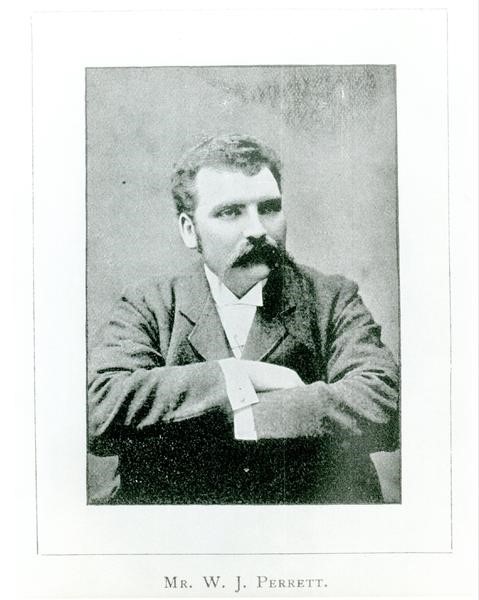
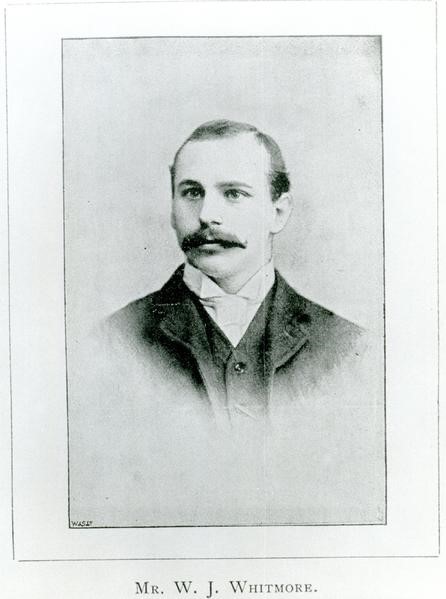
The success of Whitmore and Binyon continued with Mr. W. J. Perrett taken on as a new partner in 1893 and the company becoming the sole agents and manufacturers of ‘The Haggenmacher Plansifter’ in 1895. However, this success did not last much longer as the company rapidly began to decline. By 1898 they were in serious trouble and the business was sold to Whitmore and Binyon Ltd., the four partners: Mr. W. N. Whitmore, his son Mr. W. J. Whitmore, Mr. George Binyon and Mr. W. J. Perrett. However, two years later Mr W. J. Perrett took his money out and went to work as Managing Director for Clarkes of Yarmouth. In 1901 the company was finally wound up and the premises were put up for auction where it was sold to E. R. & F. Turner.
So the 121 year history of the Whitmore’s and Wickham Market came to an end. The reasons for the company’s rapid decline is unclear with suggestions that they overstretched or could not cope with the competition, but it is unlikely that we will ever now know the truth as to why the company declined so rapidly.
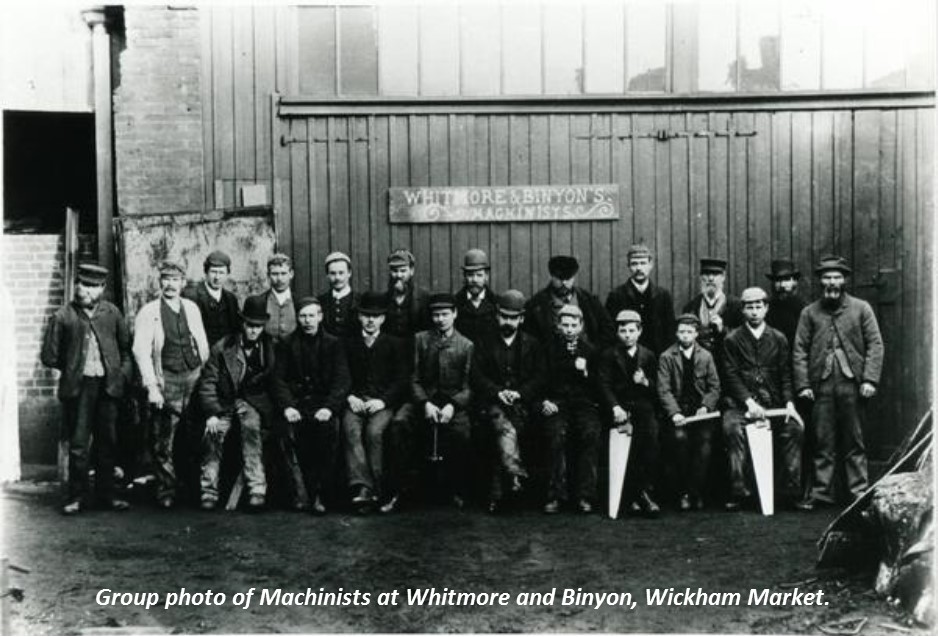
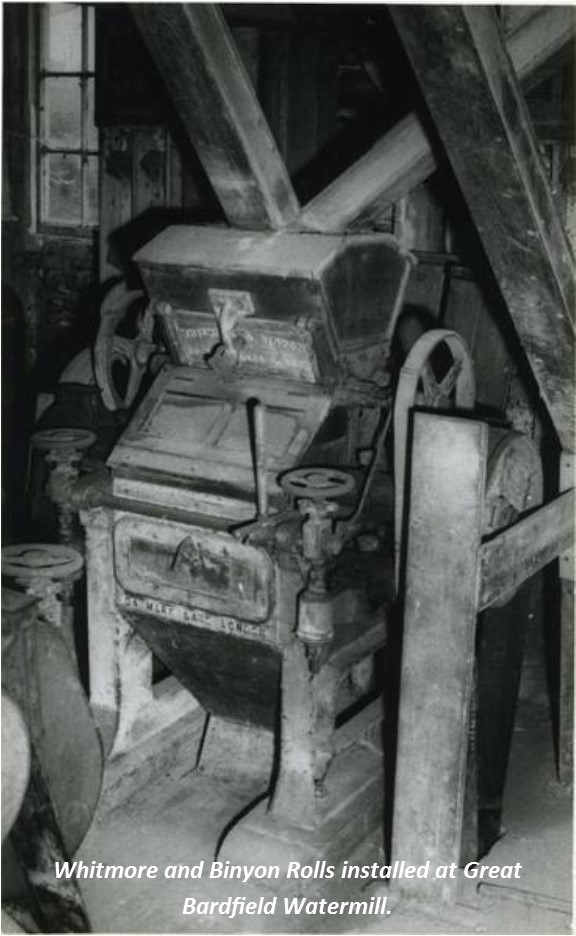
Find Out More:
Cockburn, Phyllis, Whitmore and Binyon engineers and millwrights of Wickham Market, Suffolk (2005).
Mildred Cookson’s article from Milling and Grain on ‘The British Engineering Works of Mr William Whitmore’.
Two blog posts about the decline and end of Whitmore and Binyon: ‘Whatever happened to Whitmore and Binyon?’ and ‘The Answer?’.
